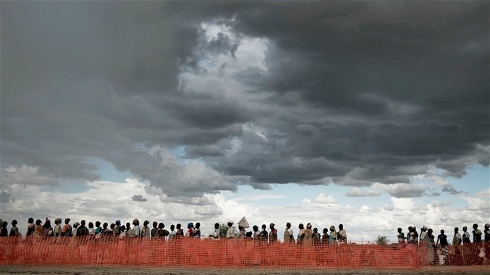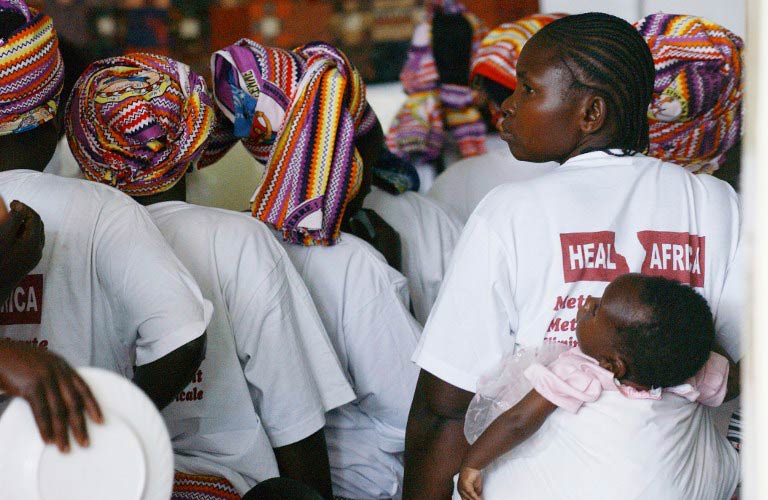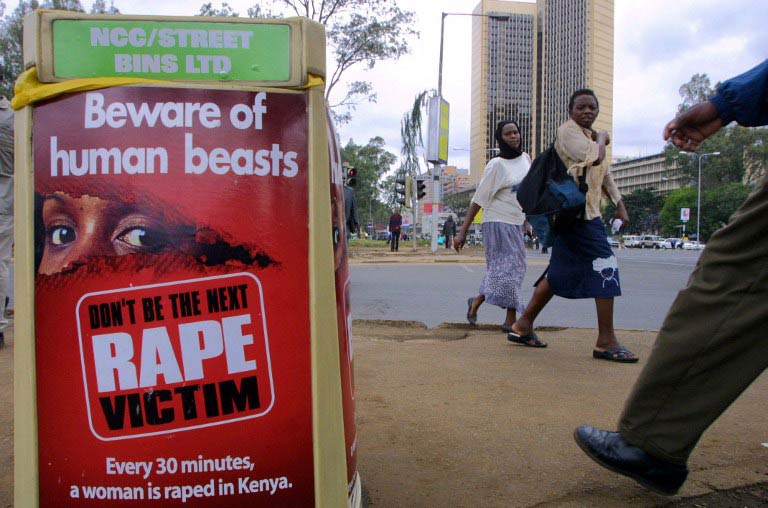
Julie Francis’s self-imposed curfew starts when the sun sets. The widowed mother of four has been living at the UN base outside Malakal since December, one of more than 17 000 people who have fled there to escape episodic fighting in South Sudan’s Upper Nile State capital. But the overcrowded camp is not without its own dangers, especially for women and girls.
Francis can hear drunken teenagers hound women as they make their way around the site’s darkened paths. She has seen the holes men have cut through the tarpaulin walls of the showers so they can peep and leer at women. She has comforted rape survivors.
“It is too much,” she said. “They attack us at the place of the toilets or at night where we collect water.” There were 28 reported cases of sexual assault in the Malakal camp between January and June of this year, according to an assessment released by the inter-agency Global Protection Cluster late last month. But aid workers acknowledge the vast majority of attacks probably go unreported.
So Francis has decided it is best to push a bedframe in front of the entrance to her tent as soon as it gets dark. If she or her daughters need to go to the bathroom, they just use a bag.
But she doesn’t think it is fair. “People should take this seriously,” she said. “They should be serious to help. There are still people who need to know that it is not right to rape.”
Where, she wants to know, are the floodlights that could roust deter men hiding near the latrines, or the regular UN Police (UNPOL) patrols to protect women who want to visit their friends at night or go to the bathroom? Why, she asked, does it seem like she is the only one taking steps to make sure she does not get raped?
The problem is not in Malakal alone. Since fighting broke out in South Sudan in mid-December, nearly 100 000 people have crowded into 10 UN Mission in South Sudan (UNMISS) bases across the eastern half of the country. They have been dubbed “Protection of Civilian” or PoC, sites. Though there are no official statistics, humanitarian groups say sexual and gender-based violence (SGBV) – including rape, but also beating, harassment and domestic violence – exists in varying degrees at all of the larger camps, as does a growing resentment among women and girls that more is not being done to protect them.
“Increasing frustration”
“Of course there’s increasing frustration,” said Nana Ndeda, the advocacy and policy manager for Care International. She has been talking to women living in the camps about their experiences since the conflict started. “They’re getting very frustrated by the fact that UNMISS is not able to provide the kind of security that they would want provided.”
What is most galling, she said, is that the strategies for what should be done already exist. The 87-page Guidelines for Gender-Based Violence Interventions in Humanitarian Settings, compiled by a committee of UN agencies and humanitarian groups, offers detailed recommendations, including lighting communal areas, creating safe spaces where women can confidentially seek help and consistently soliciting the input of women and girls on how to improve the situation.
But in the early days of the conflict, with unprecedented numbers of civilians seeking shelter at the UN bases and scores of humanitarian workers evacuating, UNMISS employees were scrambling just to provide basic services.
“We had many more people than we could house and we needed to find a way to still be able to operate the base, as well,” said Derk Segaar, who heads UNMISS’s protection team. In the early days of the conflict, as people flooded into bases across the country, “it was a matter of trying to get them in a sustainable space that would allow just enough space for them to be there.”
Thousands of people are still living in shelters hastily constructed in the early days of the fighting, when issues like SGBV took a backseat to rescuing as many people as possible.
Tidial Chany is a community leader elected to represent one of the original parts of the Malakal camp, known as PoC 2. He works closely with UNPOL on security concerns in his area, but said it is nearly impossible to monitor all of the boggy, unlit alleys and has ultimately concluded, “It’s no good for security within the PoC.”
Aware of the problems, UNMISS started working to secure additional land and to construct more strategically planned sites almost from the beginning of the conflict, Segaar said, but their efforts were slowed by both bureaucracy and continued fighting.
New camps finally opened in Juba and Malakal in June. Within the new spaces, attention has been paid to the guidelines: women’s latrines are stationed near well-lit arteries and are separated from the men’s, for instance. Another site is slated to open in the Jonglei State capital, Bor, later this month.
“It’s not a matter of a few weeks or a few months and people will all be happy to go home,” Segaar said. “That’s why we built these bases. We need to be able to keep people safe and healthy for potentially a much longer period of time.”
Andrew Green for IRIN





